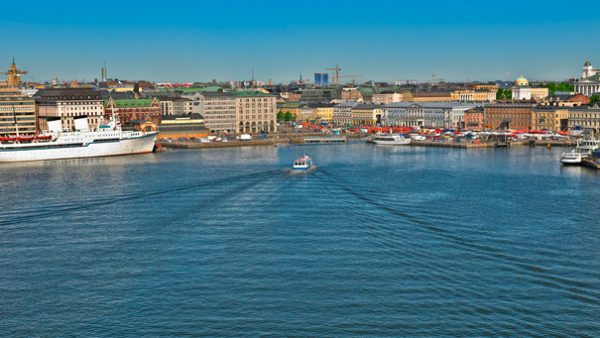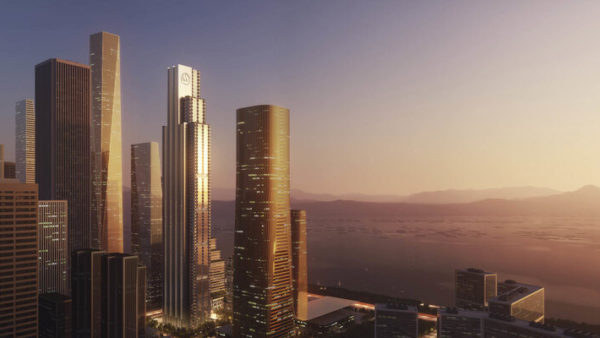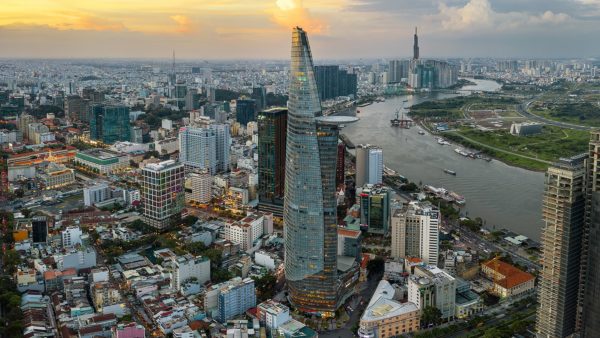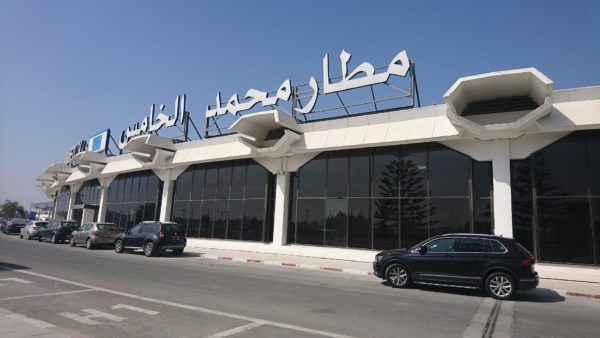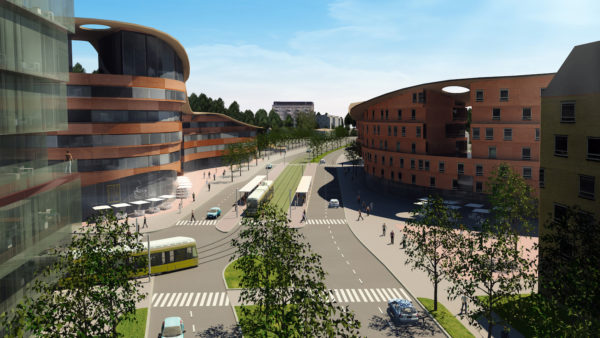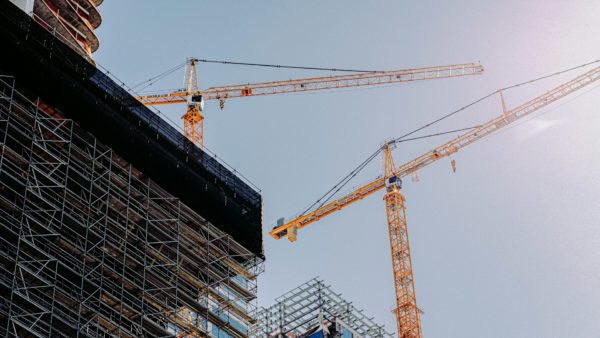While international attention is focussed on the plight of more than 800,000 Rohingya Muslims forced from their homes in Myanmar’s Northern Rakhine state and sheltering in refugee camps in Bangladesh, the increase in foreign investment into Myanmar continues, leading to a rush to build modern office complexes in Yangon, the country’s commercial capital.
Today it was announced that Bouygues of France and Taisei Corporation of Japan will build two projects with a combined development value given as $700m for Singaporean developer Yoma Strategic Holdings. One is a mixed-used development to be called Yoma Central, the other is to be a luxury hotel.
Also in Yangon, Japanese contractor Kajima is to build a $400m triple-tower project consisting of hotels and offices.
Yoma Central, designed by veteran Sri Lankan engineer and designer Cecil Balmond, is made up of two grade A office towers, a business hotel and serviced apartments connected by a retail podium. Also on the 10-acre site will be the former headquarters of the Burma Railway Company. The building’s façade will be conserved and the interior will become a luxury hotel called the Peninsula Yangon.
The office towers will be built by BTJV Myanmar, a joint venture between Bouygues subsidiary Dragages Singapore, and Tokyo-based Taisei. The hotel will be built by Dragages and Yoma.
Bouygues was one of the first European companies to enter the Myanmar market following a relaxation of the country’s isolationist policies (see related stories, below).
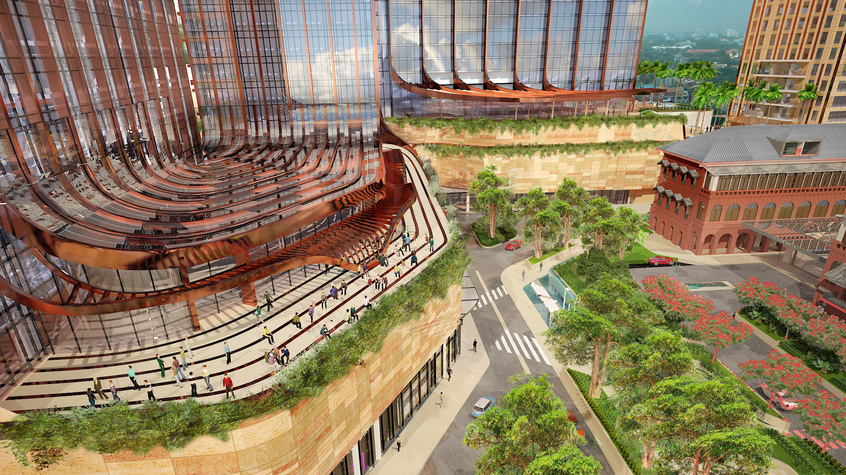
The style of the development is uncompromisingly modern
He noted that Taisei was involved in the New Doha International Airport in Qatar and the New National Stadium in Japan.
Cyrus Pun, executive director of Yoma Strategic said in a press statement: "It’s important that we bring in world class civil and engineering expertise to develop this flagship Yangon property."
Investors in Yoma projects include HongKong and Shanghai Hotels, Mitsubishi, the First Myanmar Investment Company, the International Finance Corporation and the Asian Development Bank.
Work to prepare the site has already begun and construction is expected to be completed in 2021. Yoma hopes to begin selling apartments in 2018.
Also in Yangon, Japanese contractor Kajima is to build a $400m triple-tower project consisting of hotels, offices and a children’s library on a build-operate-transfer basis. This will give the Japanese company control of the facilities and land for up to 70 years.
The complex will consist of three towers, of 27, 21 and 20 storeys in height for a total floor space of 170,000 sq m.
This scheme, which is also financed by Mitsubishi, is part of an intergovernmental deal struck between Myanmar and Japan in 2015 to develop public land on a public-private partnership basis.
The surge of interest in Myanmar began when the country began opening up to the world in 2011. The economy is growing at around 6% a year and there is a rush among multinational companies to establish a presence, which is in turn triggering a demand for class A office space.Â
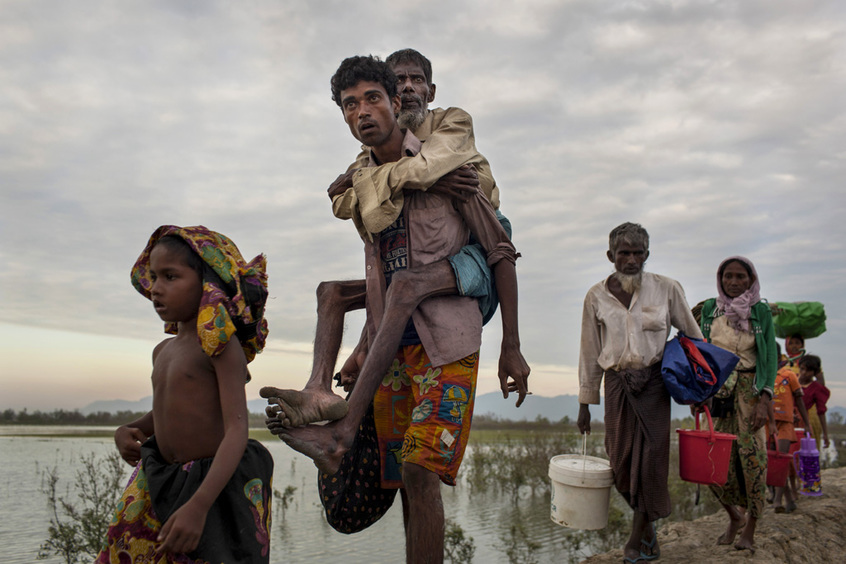
Rohingya refugees who crossed the Naf River to Bangladesh on makeshift rafts made of logs (UNICEF/Brown)
A recent report by commercial property agent Colliers International predicted continued growth as economic reforms such as the new Myanmar Investment Law, and an opening-up of the insurance sector, will stimulate foreign direct investment.
The total stock of office space in Yangon has increased from less than 50,000 sq m in 2012 to a forecast of just short of 400,000 sq m in 2017, of which about 100,000 sq m will be added this year.
Karlo Pobre, associate director Colliers International, commented in the Myanmar Times: "There is potential for office development. Insurance sector developments and new Investment Law will attract more foreign investors. As such, demand from foreign investors for fairly priced international standard office towers in Yangon will be high."
Meanwhile, the United Nations has called Myanmar’s actions against the Rohingyas "textbook ethnic cleansing", and yesterday said the influx into Bangladesh continues with 1,800 having arrived in the last week, bringing the total number of refugees to 836,000.
Top image: Balmond Studio’s design for the Yoma Central complex. All photos courtesy of Yoma Strategic.
Further Reading:





